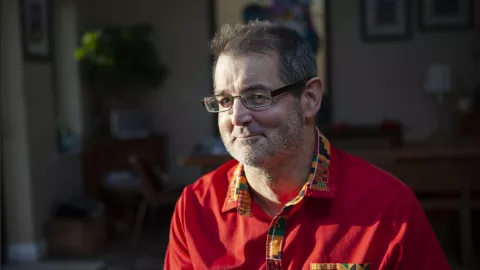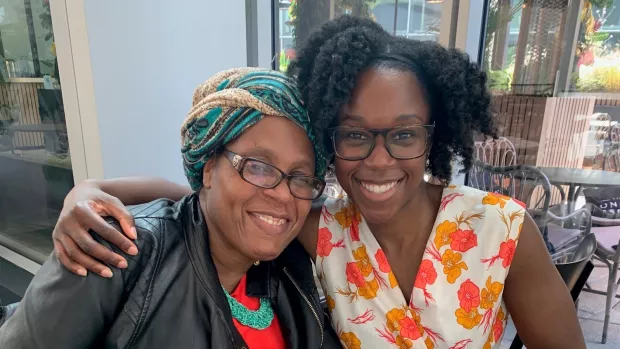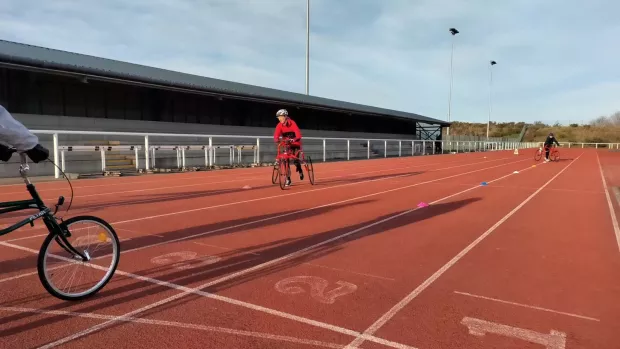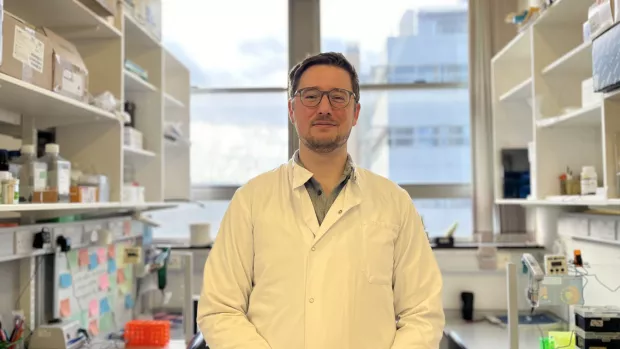
I want to see a brighter future for people with progressive MS
Mark is a self confessed thrill seeker. He also lives with secondary progressive MS. He hopes that research will stop MS in its tracks for future generations.
My name’s Mark and I live with multiple sclerosis. My passions in life are my wife and two children and being a disability advocate. I love public speaking.
MS isn’t a well-known condition, and there are so many other causes. But it’s a tough, tough, condition to deal with.
I was diagnosed with relapsing remitting MS in 2007, though I can trace my first symptoms back to 1992. For many years I was in denial about bits and bobs that were going on. My wife put two and two together more quickly than me.
Once I faced up to it, I was diagnosed with MS within months. The neurologist said it was ‘light’ and I wasn’t even offered a disease modifying therapy (DMT). I was just told to get on with it.
Initially I stayed in denial. My wife was devastated. It was hard work. There were tears and heavy drinking, heavy hugging, but we got on with life.
How MS has affected me
My MS advanced fairly quickly – it’s now secondary progressive. I went from the walking drunk stage, to a walking stick, to a walker and then to being a full-time wheelchair user. And now I have a suprapubic catheter.
I’ve had brilliant employers. But I recently took medical retirement through fatigue and cog fog – the ‘messy thinking’ really impacted me in professional terms.
I’ve lost friends because of MS. Not necessarily because I’m not dancing on a table with a tequila in my hand anymore, but I think because they’re scared. Scared of saying the wrong thing, so they withdraw. I do have a wonderful set of friends now though, who don’t mind that I’m only available in the afternoons.
MS has really impacted my view on life
I’ve always been an adventurer. I spent 10 years working for Disney, so I spent a lot of time on rollercoasters. Before that I was a ski rep. But since the MS, I’m a little more extreme.
I’ve sky dived three times – I’m not allowed to do that anymore, so I now do indoor skydiving. I’ve done seated skiing, and wheelchair rugby was huge for me for three or four years. I’ve sailed on a tall ship. Give me a bungee jump any day of the week!
But MS has also made me, I think, a nicer person. Now I really care about causes, people, life. I just want to make the world a better place.
Why I’ve joined clinical trials
Because I’ve got quite advanced progressive MS, there are no DMTs I can take. But I’ve just started on my second clinical trial. It’s wonderful to be able to participate, and it’s very safe because it’s testing existing drugs.
I was first on the MS-STAT2 trial, which was testing statins to see if they could slow disability progression. Now I’m on the CHARIOT-MS trial. This is looking at improving hand and arm function. I’ve basically got one functioning limb left. I can’t walk, and one hand is quite scrunched up. It’s meant I’ve lost my driving license. And my wheelchair rugby went from rubbish to really, really bad…
Being on the trial is brilliant. I get so much love from the neurologist. I get support from the team, I get extra MRI scans, I get so many different measurements.
It’s like private healthcare but on the NHS. With my age, and advanced MS, I can feel like I’m on the scrap heap.
Research advances might come from leftfield approaches
The advances in research have been amazing. When I was diagnosed the earlier, commonly prescribed DMTs were much less effective than ones that have become available within the last 10 to 15 years.
But I want something for people like me, who are more progressive. I’ve got two sons aged 13 and 18-years-old, and I want to pay it forward. To stop MS in its tracks for future generations.
Some of the research we need to do this will be from leftfield, different approaches like the Catalyst grants. Something magical might be out there that we would never have thought of.
I’m incredibly grateful for anybody who donates to MS research. I’ve raised about £20,000 myself over the years for different MS causes.
Although the progress we’ve helped make together has been fantastic, we need to fund more research now, and into the future.
So everybody affected by MS can see a brighter future.
Let’s start something amazing together.




